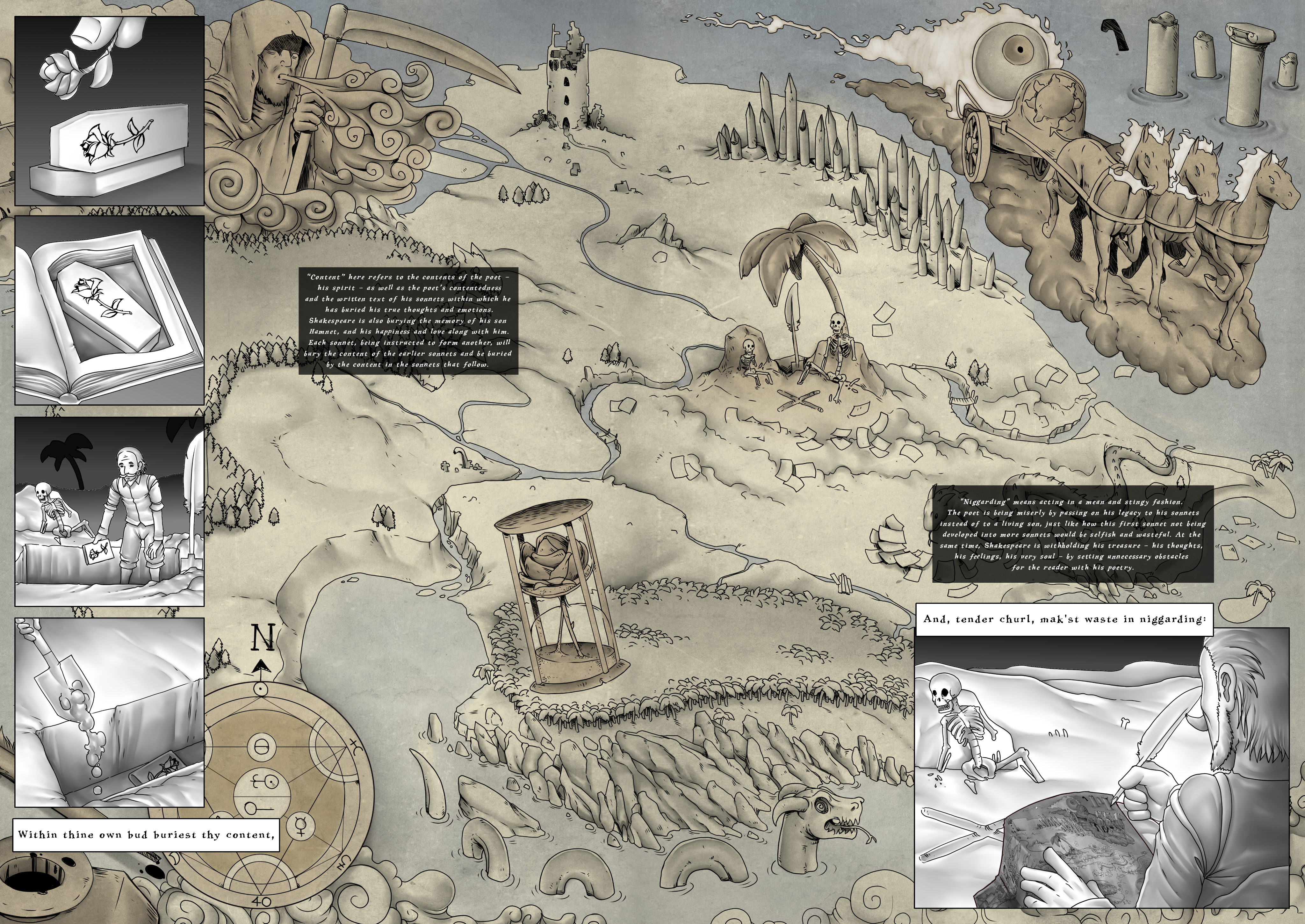Page 30
 |
| CLICK HERE TO VIEW IN A NEW TAB |
| CLICK HERE TO VIEW AT HIGH RESOLUTION |
Shakespeare folds up his sonnet into an origami rose, which heralds the "gaudy spring" represented by a field of roses growing out of the book of sonnets. To illustrate the heralding, we see the origami rose blowing a rolled up page as a trumpet, and to illustrate heraldry, we see Shakespeare's coat of arms.
For those of you unfamiliar with the tragedy represented by the Shakespeare family's coat of arms, here's the quote from the book I published a few years ago, the first volume of Shakespeare's Sonnets Exposed:
"William Shakespeare and his father John were heavily invested in the concept of legacy, which a fair number of people in those days were, but John Shakespeare was a particularly ambitious man and in the 1560’s or 70’s had applied for a coat of arms. This was very important as it would render him a gentleman, with all that being a gentleman entailed which included being able to carry a sword. It might be of interest, then, to learn that back then the only commoners authorized to carry swords were actors and in addition to writing plays William Shakespeare’s chosen profession included acting in plays as well.
One important aspect of a coat of arms is that it was passed down from father to son. In those days, women could only bear children, not legacy, and the very idea behind a marriage contract was that the man was effectively buying the rights to a woman’s womb so that he could have a son with his name, who could then inherit whatever wealth or titles he was able to amass during his lifetime.
William Shakespeare had three children, two daughters and a son, his son Hamnet being the only child of the three who would be capable of carrying Shakespeare’s name and legacy.
Unfortunately, Hamnet died in 1596 at the tender age of 11. It is suspected that he died of the black plague, though there has been some speculation about other possibilities, but the important fact here is that his death was devastating to Shakespeare, both as a father who loved his son, and as a man being confronted by the death of his paternal legacy. A few months after Hamnet’s death, the Shakespeares were finally awarded their coat of arms - a coat of arms without a son to carry them, which I expect would have been very painful indeed."
An enormous thank you to my patrons for your continued support! If you're not already a patron, please sign up so that we can produce more pages faster, you'll gain access to exclusive content and both my and Shakespeare's eternal gratitude!
An enormous thank you to my patrons for your continued support! If you're not already a patron, please sign up so that we can produce more pages faster, you'll gain access to exclusive content and both my and Shakespeare's eternal gratitude!
